Media Contact:
Julia Friedmann, West End Strategy Team
jfriedmann@westendstrategy.com; 202.702.3302
MON. 5/17: Expert Briefing on the Life-Saving Potential of Extreme Risk Protection Orders in Pennsylvania
As gun violence reaches historic levels in Pennsylvania and nationwide, public health, veteran, and law enforcement experts will discuss how enacting an extreme risk protection order law would save lives by preventing firearm suicides and homicides
WASHINGTON – Four Pennsylvanians die every day from gun violence. On Monday, May 17, at 4 p.m. EDT, the Educational Fund to Stop Gun Violence (EFSGV), an affiliate organization of the Coalition to Stop Gun Violence, and CeaseFirePA will convene an expert panel for a briefing to contextualize a policy tool with the potential to prevent firearm homicide and suicide in Pennsylvania.
Extreme risk protection orders, also called extreme risk laws, empower law enforcement and, depending on the jurisdiction, family members, health professionals, and school administrators, among others, to work with courts to temporarily remove firearms from those who pose an elevated risk of danger to themselves or others. Lawmakers in Pennsylvania’s state legislature are currently considering bipartisan legislation that would allow family and household members and law enforcement to petition a court for ERPOs in Pennsylvania.
Developed by the Consortium for Risk-Based Firearm Policy, convened by EFSGV in 2013 after the shooting at Sandy Hook Elementary School, extreme risk laws establish a civil process that puts time and space between an at-risk individual and firearms. Extreme risk laws have the power to prevent suicides, mass shootings, and interpersonal violence.
***Register for the Briefing***
The briefing will be moderated by Lisa Geller, state affairs manager of the Educational Fund to Stop Gun Violence and Coalition to Stop Gun Violence, and Adam Garber, executive director of CeaseFirePA.
Panelists will include:
- Jack Rozel, MD, MSL, medical director of resolve Crisis Services of UPMC Western Psychiatric Hospital, has been working in emergency mental health response for 30 years. Rozel trains and consults with teams across UPMC and the country on projects related to violence and threat management, staff injury prevention, firearm injury prevention, and crisis and emergency psychiatry. Rozel has served as an incident commander for mass shootings and been involved in the behavioral health response to several mass casualty events. He was a major contributor to the National Council for Behavioral Health’s 2019 report on Mass Violence, the National Suicide Prevention Lifeline’s violence assessment guidelines, and the Pennsylvania Governor’s Special Council on Gun Violence report.
- Lee Wagner served for eight years in the U.S. Marine Corps; he was part of the 1st Marine Division during the invasion of Iraq in 2003. Wagner is currently completing his master’s degree in community psychology at Point Park University. He has been working with veterans in the Pittsburgh area for almost a decade. His work focuses on service members who have experienced combat trauma and military sexual trauma. Much of his work in the community is on suicide prevention and awareness, and he is a trained suicide interventionist.
- Taylor Kleffel is manager of state policy for the American Foundation for Suicide Prevention (AFSP). Kleffel works with local AFSP Chapters and grassroots advocates around the country to prioritize mental health and suicide prevention legislative initiatives, guide lawmakers in drafting and passing effective state suicide prevention laws, and advocate on behalf of those who have been impacted by suicide.
- Christopher Carita is a detective in south Florida. Among his main responsibilities is investigating cases for risk protection orders. He is also a Bloomberg Fellow at the Johns Hopkins Bloomberg School of Public Health and is a contributor to the Consortium for Risk-Based Firearm Policy’s latest recommendations for ERPO policy and implementation.
- Lauren Footman is director of outreach and equity at CSGV and EFSGV, working to empower and amplify impacted communities by providing them tools and resources to cultivate safe and sustainable communities. She has worked with local and national organizations on civil rights and gun violence prevention at the intersection of policy, community organizing, and philanthropy.
ADDITIONAL BACKGROUND ON ERPOs
- President Biden’s recent executive orders included a requirement that the Justice Department create a model state ERPO bill.
- The Consortium for Risk-Based Firearm Policy recently released an updated set of recommendations to improve and enhance the effectiveness of ERPOs nationwide. Since 2013, 19 states and the District of Columbia have implemented the laws.
###
About the Educational Fund to Stop Gun Violence
The Educational Fund to Stop Gun Violence is a 501(c)(3) affiliate organization of the Coalition to Stop Gun Violence, the nation’s oldest gun violence prevention organization. EFSGV uses a public health and equity lens to identify and implement evidence-based policy solutions and programs to reduce gun violence in all its forms and to make gun violence rare and abnormal. EFSGV is the gun violence prevention movement’s premier research intermediary and founder of the Consortium for Risk-Based Firearm Policy, a group of academics and practitioners who collaborate to develop innovative recommendations for policymakers.
